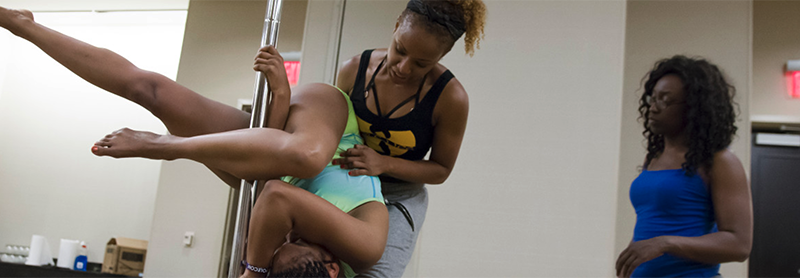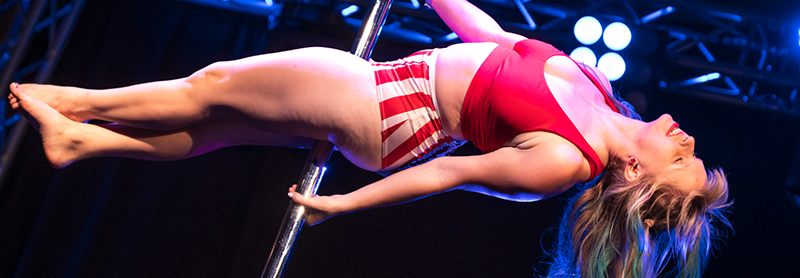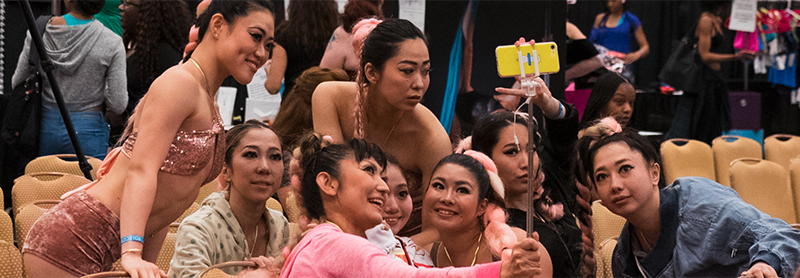Jumping back in time to the very first IPIA webinar (IPIA members can watch the…

How to be a pole instructor: 3 things to think about, first
Becoming a pole instructor can be a very rewarding experience!
You can share your love of pole with your new students and meet new people.
It can also be hard on the body and is not often an “easy” (relatively speaking) way to make money.
While there are many paths to becoming a pole instructor, this post will cover a few things to ask yourself first to explore if becoming a teacher is part of your pole journey.
Ask yourself, why you want to be an instructor?
Being an instructor can be challenging. Ask yourself why you want to be an instructor.
Some people want to be an instructor so that they can pole more. And unfortunately, this is typically not the case.
If you work for a studio, you might spend a lot of your time teaching other students rather than training for yourself or for fun. If you run your own teaching business, you will spend a lot of time finding new students, managing the administrative part of your business, and teaching other students often with even less time for your own training.
Ask yourself, do you need further education?
Some pole instructors come from a history of performing in or out of clubs and have lots of relevant experience doing different pole and dance movement. Other pole instructors spend time in an adjacent industry like fitness or physical therapy and have a lot of information that can be applied to the pole industry. Still others come with no relevant experience, no background in a similar industry, and educate themselves using the materials currently available in the pole world such as teacher trainings and certifications.
Which is the right path? The real answer is; it depends. Some studios require specific years of experience or specific certifications for their instructors and/or that all new instructors go through a studio-specific training program to understand their methods and preferences for how and what to teach.
Generally, a good pole instructor is always learning how to train bodies that are different from them, staying up to date on new information for how to teach and how to prevent or manage injuries, and someone that genuinely likes listening to and helping other people. Sometimes that involves informal training and sometimes there is a more formal path. Regardless of cost, further education will take time and an open mind!
Ask yourself, do you care about the money involved?
Being a pole instructor is often not a lucrative field. While some folks have parlayed being a pole instructor into lucrative careers, many have their pole teaching experience function more as a side hustle.
According to the last Pole Industry Financial Survey, 75% of pole instructors had employment outside of the pole industry.
Also, according to the last Pole Industry Financial Survey, pole classes paid between $21-30/hr on average (mostly North American respondents).
Pole instructors should be aware that there may be costs associated with being an instructor such as insurance (especially if you are not an employee of a studio or other entity but a contractor), body work/healthcare costs, continuing education costs (as mentioned previously), and other potentially other costs like your clothing, a music service fee, and more!
Are there potentially other considerations to think about before starting down the path to becoming a pole instructor? Absolutely! Use these first three questions as a jumping off point to see if becoming an instructor is the next step in your pole journey.



